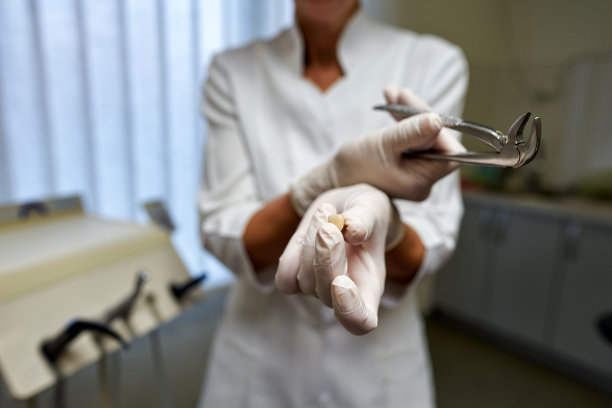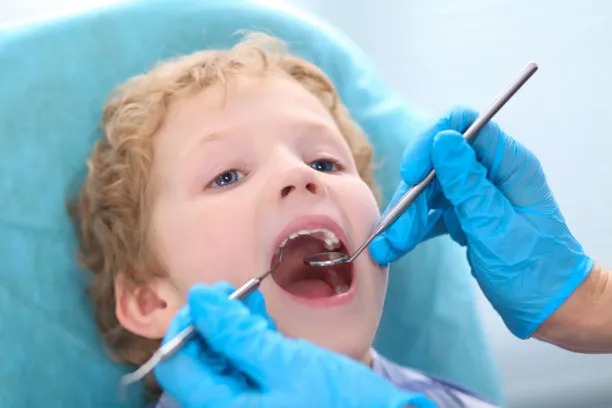Summary: Periodontal disease, a common oral health issue, can lead to serious consequences if not properly addressed. This article delves into effective strategies for preventing and treating periodontal disease, emphasizing the importance of oral hygiene and regular dental check-ups.
1. Importance of Oral Hygiene

Proper oral hygiene, including brushing, flossing, and mouthwash, is essential for preventing periodontal disease. Plaque buildup, if not removed, can lead to gingivitis and eventually periodontitis.
Regular dental cleanings and check-ups help identify any early signs of periodontal disease, allowing for timely intervention and treatment. Educating patients on the correct oral hygiene practices is crucial in preventing the progression of the disease.
Incorporating antimicrobial mouthwashes and toothpaste into daily oral care routines can further aid in reducing bacteria levels in the mouth, decreasing the risk of periodontal disease development.
2. Healthy Diet and Lifestyle Choices
A balanced diet rich in essential nutrients, particularly vitamin C and calcium, plays a significant role in maintaining healthy gums and preventing periodontal disease. Avoiding sugary and acidic foods helps in preserving enamel and preventing decay.
Smoking and alcohol consumption are known risk factors for periodontal disease. Encouraging patients to quit smoking and limit alcohol intake can significantly improve their oral health and reduce the likelihood of developing periodontitis.
Regular exercise and stress management techniques can also contribute to overall oral health by boosting the immune system and reducing inflammation, thus preventing periodontal disease progression.
3. Professional Treatments and Interventions
For individuals already suffering from periodontal disease, professional treatments such as scaling and root planing are instrumental in removing plaque and tartar buildup below the gum line. These procedures help to restore gum health and prevent further damage to the supporting structures of the teeth.
In severe cases, surgical interventions like pocket reduction surgery or gum grafts may be necessary to repair damaged tissues and prevent tooth loss. Dentists may also prescribe antibiotics or antimicrobial mouthwashes to combat bacterial infections and promote healing.
Ongoing monitoring and follow-up appointments are crucial post-treatment to ensure the effectiveness of interventions and prevent disease recurrence. Patients are advised to adhere to prescribed oral care routines and maintain a healthy lifestyle to prevent periodontal disease progression.
4. Importance of Regular Dental Check-ups
Routine dental check-ups play a vital role in the early detection and prevention of periodontal disease. Dentists can assess the health of the gums, teeth, and supporting structures, identifying any signs of inflammation or infection.
Professional cleanings help remove plaque and tartar that cannot be eliminated through regular brushing and flossing, reducing the risk of periodontal disease development. Dentists can provide customized treatment plans based on individual patient needs to effectively manage and prevent the disease.
Educating patients on the importance of regular dental visits and maintaining good oral hygiene practices at home is key to preventing periodontal disease and preserving long-term oral health.
Summary:
Effective prevention and treatment of periodontal disease require a multifaceted approach, encompassing proper oral hygiene practices, a healthy diet and lifestyle, professional interventions, and regular dental check-ups. By implementing these strategies, individuals can mitigate the risks associated with periodontal disease and maintain optimal oral health.
This article is compiled by Vickong Dental and the content is for reference only
Vickong Dental
Vickong Dental is a large medical group established in Hong Kong in 2008 by professors from well-known medical universities in Guangdong and Hong Kong, as well as medical doctors from key national '985' universities (including Master's supervisors and senior professors). The chain of branches brings together expert dentists with PhDs and Master's degrees from Hong Kong and Mainland China, committed to providing high-quality dental treatment.
"Vickong Dental Practices the University Motto of 'Healing and Serving Society,' with a Stable Operation for Sixteen Years. It Has Been honored with Hong Kong Enterprise Leaders's Choice,' and is a Global Trusted Implant Center for the Nobel Implant System. Recommended by Hong Kong Metro Broadcast and Guangdong Television, it Serves Customers from Over Thirty Countries and Regions, Gaining the Trust and Favor of Citizens from the Guangdong-Hong Kong-Macau Greater Bay Area and Surrounding Cities.

Thousands of customers' unanimous praise
The most recognized and highly recommended dental service by customers in the Guangdong-Hong Kong-Macau Greater Bay Area
We Ensure You Receive Detailed Care and Attention Here
Hong Kong standards, Shenzhen prices, Your Trusted English-speaking dentists

Vickong Dental Medical-Grade Instrument Disinfection Process
Vickong Dental Medical-Grade Instrument Disinfection Process

Vickong Dental Chain: A Warm and Comfortable Environment for Treatment






Appointment Hours

Q&A
Why choose Vickong Dental?
Vickong Dental practices the university motto 「Medicine to Benefit Society」, with each branch bringing together highly qualified dentists with doctoral and master’s degrees from Hong Kong and the Mainland, and has maintained seventeen years of steady operation。Recipient of 「2024 Hong Kong Enterprise Leaders Brand」, 「2025 Hong Kong Enterprise Leaders Brand」, a Nobel Biocare Global Trusted Implant Center, and a brand recommended by Metro Radio Hong Kong and Guangdong TV。
To date, we have served customers from more than thirty countries and regions,earning exceptionally high word-of-mouth recognition and trusted recommendations from residents across the Guangdong-Hong Kong-Macao Greater Bay Area and surrounding cities
We have eight major branches in Zhuhai、Shenzhen,and a consultation and service assurance center in Hong Kong,so you can book a free consultation at any time for any questions,which is very reassuring.
If I do not accept the quotation after the CT scan, will I be charged??
No! As long as the actual treatment has not started, you will not be charged any fees.
Will there be any additional charges during the treatment process?
No, there won’t be any additional charges. Before treatment begins, we will clearly explain the treatment plan and its corresponding fees. Only after the patient agrees and signs the consent form will we proceed with the dental service.
Can I pay in Hong Kong dollars?
Yes. Vickong Dental accepts payment in Hong Kong dollars. The amount will be converted based on the exchange rate of the day, and the applicable rate will be clearly communicated to you in advance.
Can I reschedule my appointment at any time?
Yes. Please contact us via **WeChat** or **WhatsApp** as early as possible, providing your original appointment time and details, along with your preferred new date and time slot for rescheduling.













